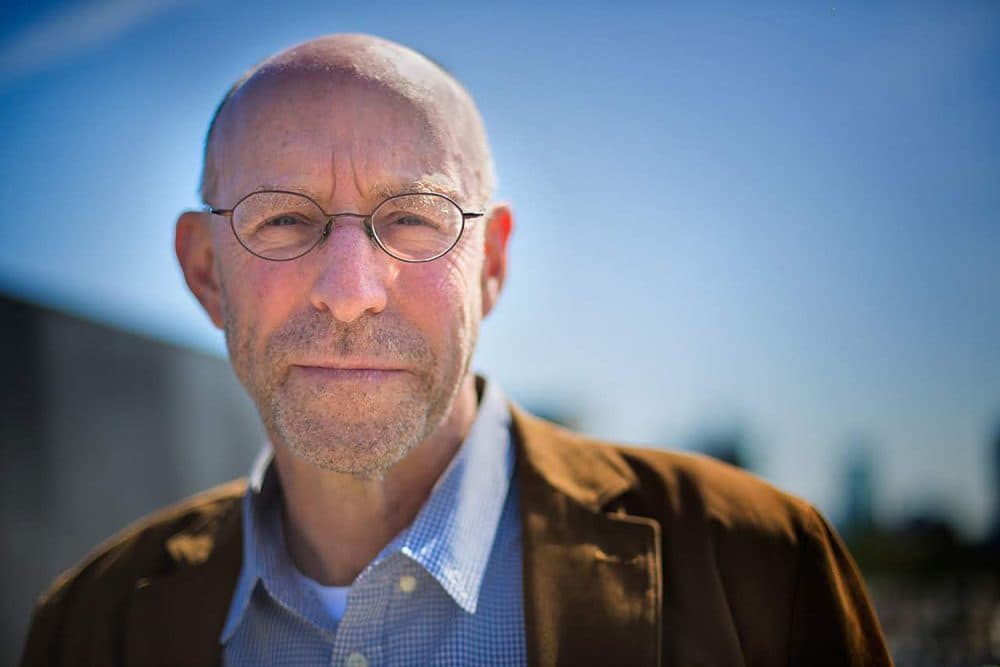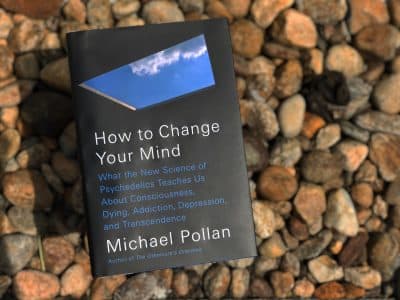Advertisement
Exploring The World Of Psychedelics With Michael Pollan
Resume
With David Wright
Writer Michael Pollan turns his attention to psychedelic mushrooms and the new science of psychedelics. He joins us.
Guests:

Michael Pollan, journalist and author of: "How to Change Your Mind: What the New Science of Psychedelics Teaches Us About Consciousness, Dying, Addiction, Depression, and Transcendence" (@michaelpollan)
Highlights:
On how he approached psychedelics as a journalist:
Pollan: "I've always been interested in the ways we use and take into our bodies things in nature. And we do that when we're eating, obviously. But the other use to which humans have put plants and fungi for a very long time is to change consciousness. It's a really curious and universal human desire. You probably used some plant to change consciousness today. Coffee, tea, cigarettes — this is just something we do. And there are certain plant drugs, or fungal drugs that have profound effects on consciousness."
On the effects of psychedelic drugs:
Pollan: "There are risks attached to these drugs. They're mostly psychological risks. The physiological risks are remarkably small. The drugs are relatively non-toxic. And they're non-addictive, they're anti-addictive. The first thing you think of when you finish a psychedelic trip is not: 'hey, I want to do that again.' It's like: 'I never need to do this again.' Because it's so intense, even if it's positive. But there are psychological risks. People at risk for mental illness, bipolar disorder, schizophrenia — should stay away from these drugs. In fact, these people are screened out of the current research. Bad trips are real, they really happen. Whether they are lasting in their effects, or a passing panic attack is a real question. But you minimize the risks if you have a guide."
From The Reading List:
Excerpt Of "How To Change Your Mind":
The New York Times: "A Strait-Laced Writer Explores Psychedelics, and Leaves the Door of Perception Ajar" — "If Pollan’s wide-ranging account has a central thesis, it’s that we’re still doing the hard work of rescuing the science of psychedelics from the 'countercultural baggage' of the 1960s. Timothy Leary and his tuning-in, dropping-out crowd so successfully branded the drugs as accouterments of hippie culture that in the mid-60s 'the exuberance surrounding these new drugs gave way to moral panic,' and soon after that 'the whole project of psychedelic science had collapsed.'
Before collapsing, though, that project discovered in psychedelics the same potential that scientists are exploring as they reclaim it today: possible help in treating addiction, anxiety and depression, and 'existential distress' — common in people 'confronting a terminal diagnosis,' which of course, broadly speaking, is all of us."
The New Yorker: "The Trip Treatment" (From 2015) -- "I was struck by how the descriptions of psychedelic journeys differed from the typical accounts of dreams. For one thing, most people’s recall of their journey is not just vivid but comprehensive, the narratives they reconstruct seamless and fully accessible, even years later. They don’t regard these narratives as 'just a dream,' the evanescent products of fantasy or wish fulfillment, but, rather, as genuine and sturdy experiences. This is the 'noetic' quality that students of mysticism often describe: the unmistakable sense that whatever has been learned or witnessed has the authority and the durability of objective truth. 'You don’t get that on other drugs,' as Roland Griffiths points out; after the fact, we’re fully aware of, and often embarrassed by, the inauthenticity of the drug experience."
Tune in, turn on, and… maybe change your mind. Author Michael Pollan revisits psychedelic drugs, a mainstay of the counterculture in the 60’s, long since fallen out of fashion. Turns out Timothy Leary may have been right about the therapeutic potential of these mind-bending drugs. Could magic mushrooms finally help people quit smoking? Could LSD be an effective treatment for depression, anxiety, or addiction?
This hour, On Point: Michael Pollan and his new book “How To Change Your Mind.” (He might change yours.)
- David Wright
This article was originally published on May 16, 2018.
This program aired on May 16, 2018.